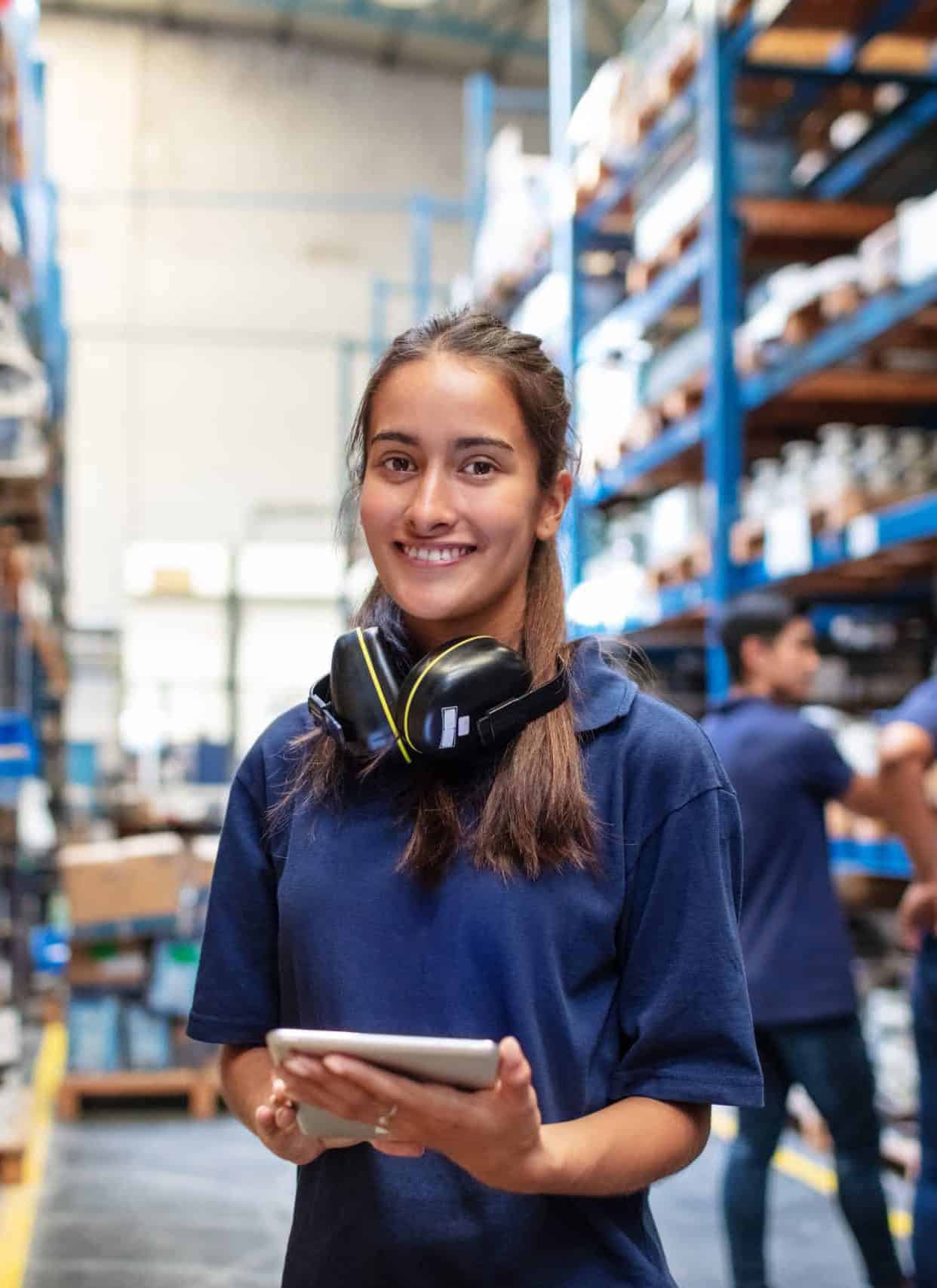We guide young people and the most vulnerable members of society towards acquiring the skills they need to plan their life pathways, while also helping them play an active role in building their future and promoting a positive, well-informed work culture.
Strategic alliances aimed at innovation and identifying integrated, systemic responses play a key role in increasing fair participation in the labour market, fostering social inclusion and promoting the development of the catchment area.
Our work is divided into various areas of intervention.
Promoting decent work

Work is a not only vital to the economy, it is also vital to personal well-being, dignity, citizenship and social inclusion. This rationale prompted us to establish the Promoting Decent Work Mission, which, in line with all the projects falling under the People Goal, strives to develop solutions that improve the quality of life of individuals, families and communities, support local development and combat inequalities.

Young people, work skills and transition to adult life
In Italy, equipping young people to take part in and contribute to economic, political and social life is an important priority. Finding a steady job offering economic independence plays an essential role in empowering young people and facilitating their transition to adult life. We are therefore committed to defending and boosting people’s competitiveness, especially in relation to the emerging generations, against a constantly changing backdrop, where modern production processes, new technologies, artificial intelligence and robotics require ever higher levels of knowledge and constant updating of existing formal and non-formal skills.
We work on these priorities alongside the Educating for Collective Development Mission within the framework of Città dell’Educazione (education city), an initiative that views education, the school system and various other educational agencies, as the main lever for Italy’s long-term growth and transformation.
Our Articolo +1 (article +1) project in Genoa is aimed at unemployed young people, aged between 15 and 29, who are not in education or training (NEET), with a view to increasing employment levels amongst them and filling gaps in their educational and vocational profiles, thus stimulating a strategic alliance between the business world and the private social sector.

Combating economic, social and occupational vulnerability
Despite improvements in certain labour market indicators, the share of the population at risk of poverty and social exclusion remains high. We need to help vulnerable people gain access to high-quality education, training and employment opportunities and promote flexible, adaptable guidance pathways, by offering integrated responses to people’s needs, both in terms of policies for employability and employment and in the social arena (empowerment, combating housing difficulties, strengthening real-life social networks and access to services).
For over 20 years, we have been involved in interventions aimed at providing training and employment opportunities for people in prison or on probation. The LEI – Lavoro project, aimed enhancing the employability of women serving custodial sentences at the “Lorusso e Cutugno” prison in Turin is an example of this. An initiative aimed at promoting the employment-related inclusion of people serving custodial sentences at the “Marassi” prison in Genoa will also come into operation in the near future.
In conjunction with the Working Together for Inclusion Mission, we support people from migrant backgrounds, to facilitate their full, active participation in the new social and production fabric.
We will also continue to promote the bespoke pathways for young people with disabilities and their families, launched in synergy with the Educating for Collective Development and Rediscovering Community Missions.

Female employment, strategic alliances and fair participation in the labour market
Employment is one of the areas in which gender gaps are most visible. Women very often face greater difficulty in getting jobs and being appointed to prestigious roles with high levels of responsibility. Partly as a result of stereotypes regarding family-related and caring duties, they are more often economically inactive, underemployed and obliged to work fewer hours to make room for domestic tasks. Italy ranks among the countries with the highest differences between male and female employment rates. Women with children are the most disadvantaged, unlike their male counterparts, who enjoy higher rates of employment.
We are carrying on the work started by the Equilibri. Una sfida per le reti territoriali: lavoro delle donne e percorsi educativi di bambine e bambini (Balancing acts. A challenge for local networks: female employment and educational pathways for children) programme, to reduce gender differences in employment, by continuing to road-test solutions for optimising the work-life balance and the flexibility of new forms of welfare and work organisation. We also place a firm emphasis on consolidating strategic alliances for employment and building local employment ecosystems in which individuals, families, businesses, schools and public and private organisations can enter into a dialogue that may not be linear or sequential but is undoubtedly interconnected.
In collaboration with the Boosting Innovation Mission reporting to the Planet Goal, we will continue to support the Digital Republic Fund, set up for the purpose of enhancing the key skills needed to complete Italy’s digital transition.